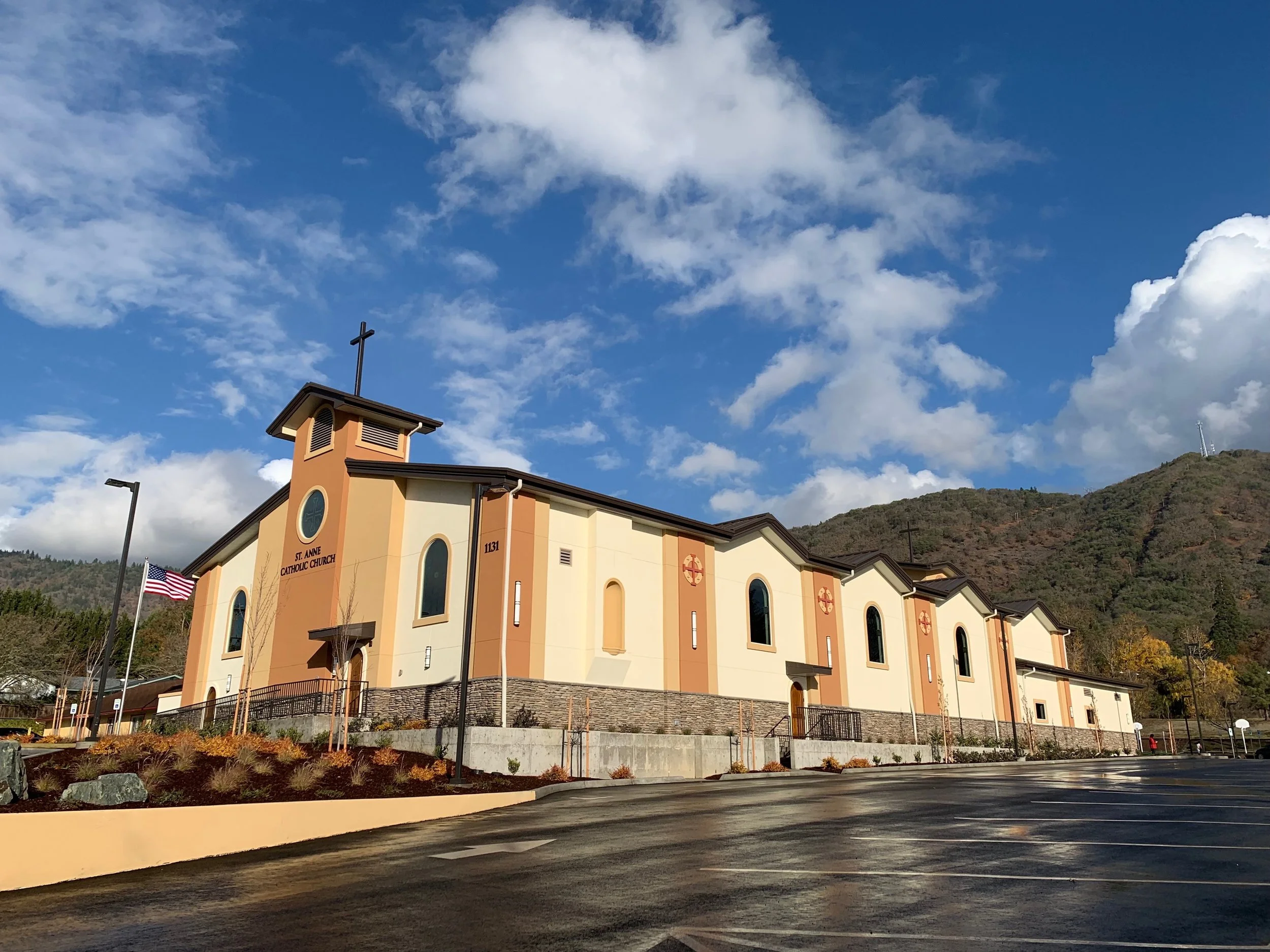Dear Parishioners,
Many of you have heard about the recent decisions by Archbishop Thompson of Indianapolis regarding the employment of two teachers in two separate Catholic schools. If not, basically the archbishop directed the two schools to let go of the two teachers in question due to their entering into a civil-same-sex marriage with each other two years prior. If they chose not to, the archbishop would withdraw the recognition of each school’s Catholic status. These actions have created much controversy of recent. Archbishop Thompson, in his subsequent press conference with his superintendent of schools, explained how the decision was made as the chief shepherd. The decision did not happen quickly, but after two years of dialogue and accompaniment with the teachers and their respective schools, the archbishop felt there was no other option to reconcile the situation. I was impressed by both the archbishop and his superintendent and the care respect they demonstrated for all the parties involved.
Some have asked, what right does a bishop have over the employment of a teacher in a Catholic school managed by a religious order? That will become more clear as time goes on, as one school is appealing the decision of the archbishop. Of note is the Church’s Canon Law, #803 which states, “a Catholic school be grounded upon the principles of Catholic doctrine; teachers are to be outstanding for their correct doctrine and integrity of life” and that “no school is to bear the name Catholic school without the consent of competent ecclesiastical authority.” That competent authority is, in this case, is Archbishop Thompson. The question may be about his authority to call for the removal of a teacher not teaching religion. In that regard, again, we will see what comes about in the appeal process for one of the schools.
While many are reacting with indignation, I recommend caution and faithful discernment. My question for us is simply this: Why does the Catholic Church exist? Why does a Catholic School exist? Why do any ministries of the Church exist? If it is not to minister (service) to people and to evangelization (spread the Good News) of Catholic Faith, then that particular ministry should reassess and realign itself with the mission of the Church or give serious consideration about stopping their activities altogether.
In regards to s a civil-same-sex marriage, it is clear from Scripture, Tradition, Natural Law, and the Magisterium of the Church that it is manifestly invalid and a sinful union. Some have questioned whether the archbishop has turned a blind eye to those who are married, divorced, and remarried without an annulment, or those who are using birth control, or those who are cohabiting, etc., attempting to reveal a “witch hunt.” The archbishop clearly makes the case that such is not true. He shared that such situations happen and will sometimes come to his attention. He cannot ignore those situations, so he has engaged with persons with these and other issues in oder to accompany them to a place of reconciliation with the Church. In some situations, the employee has reconciled their lifestyle and in others they haven’t. Regrettably, that has meant the termination of employment.
As for St. Anne Catholic school, our staff and teachers are ethically and ministerially connected as agents of the Catholic Church. To be clear, someone having same-sex attraction is not a sin. I know many parishioners who are gay or lesbian, and they live very holy lives. The press has been claiming that the Church is targeting gay people. This is not the case. Weekly, we as St. Anne, are discerning many things: Who can or cannot be a godparent at a baptism? Is an engaged couple free to marry? Should we call forth a certain person to lead a ministry or take a job? Who qualifies to be a Reader or Extraordinary Minister of Holy Communion at Mass? Who can receive or should refrain from receiving communion? The list goes on. In some cases, their choices of life have not allowed us to include them in a ministry or we have discussed with them why they couldn’t continue if they were already in a ministry. In other situations, the person lacks the competency to do the work. In other situations, the person has not shown the ethical standards of proper agency. So, I or one of my staff will step in to help guide them. If there appears no way to reconcile the issue at hand, depending on the issue, we may have them step aside temporarily or permanently. Thankfully, in the process of discussing their issue, it frequently happens that a parishioner in a ministry will come to the correct decision and begin the process to correct their situation. The Church can also make mistakes along the way, and so these conversations have also offered us an opportunity to apologize and ask for forgiveness. It’s hard for all of us to ask for forgiveness, yet we as the Church are called by Christ himself to do so when appropriate.
When I was studying to be a teacher in college, I was taught time and time again that we that teachers are influencers. What we say and do influences our students. Ethically, teachers are “in loco parentis” or in the place of the parents. In turn, the parents place their precious ones in our school knowing full well that we are a Catholic parochial (“parish”) school. Families bring their children to us knowing that we excel in “faith formation, scholarship, leadership and service, according to our Catholic values” (St. Anne Catholic School Mission Statement). The same is true for all our staff at St. Anne. We are called to proclaim the Gospel with our lives. The bar is hight, but we desire to reach for it with God’s grace.
Let us remember that the Church is not a social service agency. Yes, many of her ministries such as the St. Vincent de Paul are focused on social outreach. But, they do so out of a deep respect of the human person enlightened by the Gospel of Christ. We also have social groups in our church such as our Bunko group. In these cases, their very coming together in a Christian environment builds community and fellowship, both biblical principles. The Church’s activities are varied and broad. Yet, all continue to exist in as much as they are in harmony with our mission.
So, what is the Church? There are many ways to look at her. I would like to set before us all that she is the Bride of Christ striving to be faithful to her Bridegroom, Jesus, and his teachings, and as such, we commit ourselves to our Lord. This means that sometimes people will disagree with our mission and we might get “blow-back.” Other times, we will sin or make mistakes. We are not perfect. Yet, we stand as bearers of the light, though we also struggle with our own failures and sins.
I am very proud of our school which does a great job in loving everyone who comes through our doors! We have great staff, teachers and an excellent principal in Colleen. The climate of our current culture creates many challenges. As such, please know that our administration meets weekly to discuss how to keep our Gospel standards high, ethics clear, and our compassion real. In our weekly meetings, we discuss frequently the new challenges that come forward in our culture. By being clear and compassionate, I believe St. Anne will continue to be a beacon of love and compassion all the while call us all to the highest standards of the Gospel. We exist to minister (serve) and evangelize. These are not just side-topics of our activities. Rather, the Church exists to evangelize. It’s not just what we do. It is who we are. So, all staff are called to proclaim Christ loving mission, a responsibility, I believe, we do well and with enthusiastic joy!
Please know that our administration is always open to discussing these and any other issues on your hearts. We are called to accompany each other on our walk with Christ.
Blessings,
Fr. William Holtzinger
Pastor











